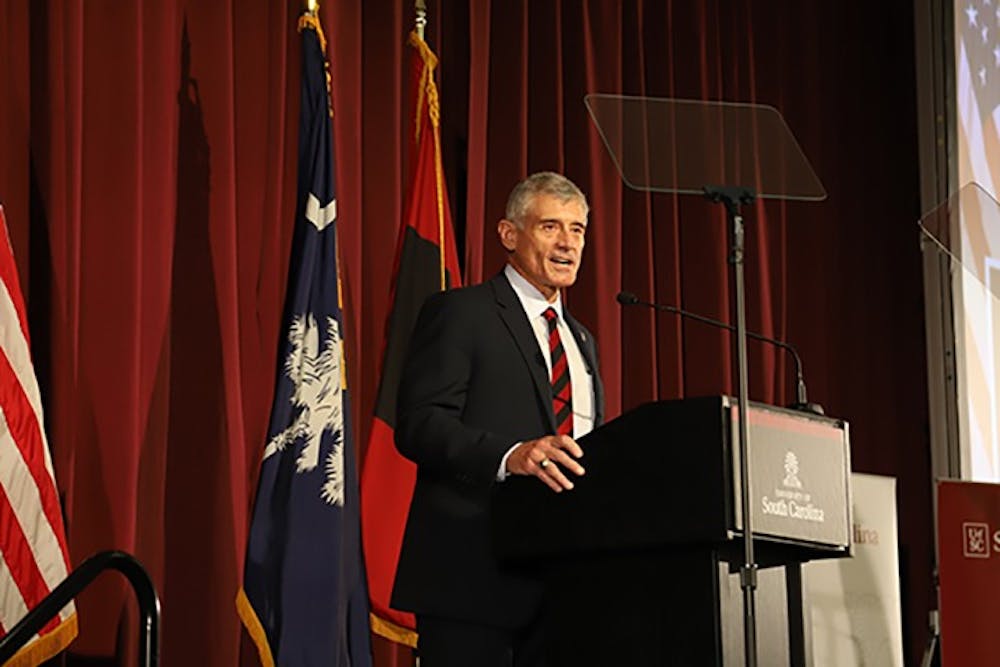University president Bob Caslen, during a Graduate Student Association meeting Friday night, said a plan is in development for required monthly COVID-19 testing of students during the spring 2021 semester.
All students will also be required to be tested for COVID-19 before returning to the university in spring 2021, similar to the university's admittance policy for fall 2020.
“We're going to shift from the voluntary to the requirement to take a test so that we can keep track of all of you, 100%,” Caslen said.
Caslen also discussed his visit to Five Points on Halloween. He said he went to witness the ordinances of the mayor and governor in action.
“I really wanted to see whether some of the ordinances that the mayor had put in place, and the governor had put in place, were actually effective in containing the spread of the virus, and I concluded that they were not,” Caslen said.
The increase in restaurant capacity from 50% to 100% and a loophole allowing patrons with drinks to forgo masks, Caslen said, are both measures contributing to the spread of the virus.
The university’s positive COVID-19 case rate, 1.05% as of Friday, has remained at a fraction of South Carolina’s, which stands at 13.2%
“Ninety percent of the students are doing the right thing,” Caslen said.
These figures are promising going into Thanksgiving, Caslen said, “assuming that you do have random sampling,” — essentially, assuming all students are being tested at the same rate.
Caslen said one of the most permanent holdovers from the pandemic would be "optionality," where students are able to choose how they attend classes.
“I taught a class; it was an undergraduate class in strategic leadership in the business college, a couple weeks ago. Twenty-five students were assigned to the class. Only four showed up," Caslen said. "When you have an opportunity for face-to-face class, 21 out of 25 elected to take it online.”
The decision of whether or not to continue synchronous online classes after the pandemic is a "huge debate," Caslen said.
Additionally, the university plans to explore marketing online programs to the roughly 100,000 military personnel stationed in South Carolina as a means of increasing its revenue.
“We have a product, we have a brand, that a lot of them are very interested in, and that's to be a Gamecock and get a Gamecock degree,” Caslen said.
Finally, Caslen spoke about the university's progress toward becoming a member of the Association of American Universities, a group of the country's 65 leading research universities.
More spending on research, Caslen said, is key to securing this status for the university. The required level of spending needed is $150 to $160 million higher than the university's current expenditure of roughly $120 million per year, Caslen said.
The university is collaborating with four other universities from South Carolina and Georgia at the Savannah River National Laboratory, an energy and environmental research facility on the South Carolina-Georgia border operated by the U.S. Department of Energy.
A five-year federal grant worth $3.8 billion has been given to the five universities involved, in addition to $120 million from Governor Henry McMaster to the South Carolina universities involved, Caslen said.
"There's a lot of potential in this area. And that's one of the areas that the governor, we convinced the governor to commit $120 million in support of that, so we're really pleased about that," Caslen said.
These grants are part of a plan to develop a "corridor" of nuclear engineering and cybersecurity in Georgia and South Carolina, Caslen said.

